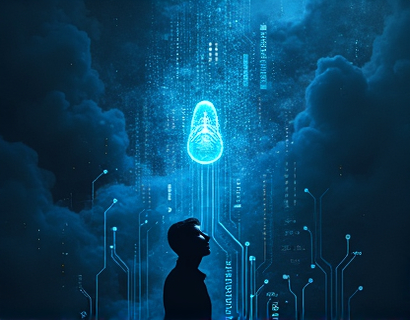AI-Driven Personalized Learning Platform: Transforming Education for Lifelong Learners
The landscape of education is undergoing a significant transformation, driven by advancements in artificial intelligence and machine learning. An AI-driven personalized learning platform is revolutionizing the way students and lifelong learners access and engage with educational content. This platform harnesses the power of adaptive technology to deliver tailored learning experiences that cater to individual needs, preferences, and learning paces. By integrating AI into the educational process, it is possible to create a more inclusive, effective, and engaging learning environment that supports users in achieving their academic and professional goals.
Traditional educational models often struggle to meet the diverse needs of learners, leading to a one-size-fits-all approach that can leave many students behind. In contrast, an AI-driven personalized learning platform offers a dynamic and adaptive solution. This platform uses sophisticated algorithms to analyze user data, including performance metrics, learning habits, and feedback, to create customized learning paths. The result is a more personalized and efficient learning experience that keeps students motivated and engaged.
Key Features of AI-Driven Personalized Learning
One of the most significant advantages of an AI-driven personalized learning platform is its ability to provide instant feedback. As students progress through their lessons, the system continuously assesses their understanding and performance, offering real-time corrections and suggestions. This immediate feedback loop helps learners identify and address gaps in their knowledge quickly, reinforcing correct concepts and correcting misunderstandings before they solidify.
Another critical feature is the adaptive learning algorithm. This algorithm dynamically adjusts the difficulty and content of lessons based on the user's performance and progress. If a student is eExcelling in a particular topic, the platform can introduce more challenging material to keep them engaged and prevent boredom. Conversely, if a student is struggling, the system can provide additional resources, examples, and practice exercises to ensure a solid grasp of the concept.
Personalization extends beyond just the content and pace of learning. The platform also considers the individual's learning style, preferences, and goals. For instance, visual learners might benefit from more diagrams, videos, and infographics, while auditory learners might prefer podcasts and audio lectures. By recognizing and accommodating these differences, the platform ensures that each user receives an education that aligns with their unique needs and preferences.
Supportive Learning Environment
The AI-driven personalized learning platform creates a supportive environment that fosters a love for learning and encourages lifelong education. One of the key elements of this environment is the sense of community and collaboration. The platform often includes features that connect learners with peers, mentors, and experts, facilitating discussions, group projects, and knowledge sharing. This social aspect not only enhances the learning experience but also helps build a network of like-minded individuals who can provide support and motivation.
Moreover, the platform is designed to be user-friendly and accessible. Intuitive interfaces and clear navigation ensure that learners of all technical backgrounds can easily use the tools and resources available. This accessibility is crucial for making education inclusive, allowing individuals from various backgrounds and with different levels of digital literacy to benefit from personalized learning.
Benefits for Students and Lifelong Learners
For students, an AI-driven personalized learning platform offers numerous benefits. Firstly, it promotes deeper understanding and retention of material. By focusing on areas where the student needs improvement and providing targeted resources, the platform ensures that learning is both effective and efficient. This personalized approach can lead to better academic performance and higher levels of engagement.
For lifelong learners, the platform provides a flexible and convenient way to continue education beyond traditional schooling. Whether it's picking up a new skill, advancing in a career, or pursuing a hobby, the platform offers a wide range of courses and resources tailored to diverse interests and goals. The ability to learn at one's own pace and on one's own schedule makes continuous learning more feasible and appealing.
Additionally, the platform's adaptive nature means that learners can achieve their goals more quickly and with less frustration. By continuously adjusting to the user's progress, the platform ensures that the learning journey is challenging yet manageable, keeping learners motivated and committed to their objectives.
An AI Teacher for Students and Adults
The concept of an AI-driven personalized learning platform can be likened to having an AI teacher dedicated to each learner. This virtual instructor is always available, providing guidance, support, and feedback around the clock. Unlike human teachers, who may have limited time and resources to devote to each student, an AI teacher can offer individualized attention without the constraints of human limitations.
The AI teacher uses machine learning algorithms to understand the learner's strengths, weaknesses, and learning patterns. It can identify areas where the learner excels and those that require more attention, adjusting the teaching strategies accordingly. This level of customization ensures that each learner receives the most effective instruction possible, tailored to their unique profile.
Furthermore, the AI teacher can simulate various teaching styles and methods, allowing learners to experience different approaches and find what works best for them. This flexibility is particularly beneficial for adult learners who may have different learning preferences based on their professional experiences and personal backgrounds.
Case Studies and Success Stories
While this article does not focus on specific case studies or individual success stories, it is worth noting that numerous educational institutions and organizations have already seen positive results from implementing AI-driven personalized learning platforms. For example, some schools have reported significant improvements in student engagement and performance metrics, with learners showing greater retention of material and higher test scores.
In the professional sector, companies using these platforms have observed increased employee satisfaction and skill development. The ability to learn new skills and adapt to changing industry demands has become a critical advantage in today's fast-paced work environment. By providing employees with personalized learning paths, organizations can enhance their workforce's capabilities and stay competitive.
Challenges and Considerations
Despite the numerous benefits, there are challenges and considerations to keep in mind when implementing an AI-driven personalized learning platform. One of the primary concerns is data privacy and security. The platform must ensure that user data is handled with the utmost care, adhering to strict privacy standards and regulations. Transparency about data usage and providing users with control over their information is essential.
Another challenge is the initial setup and integration of the platform into existing educational systems. This process requires careful planning and collaboration between educators, technologists, and administrators to ensure a smooth transition and maximum impact. Ongoing support and training for both users and educators are also crucial to maximize the platform's effectiveness.
Additionally, while AI can provide valuable insights and recommendations, it is important to maintain a balance between technology and human interaction. The role of human teachers and mentors remains vital in providing emotional support, mentorship, and real-world context that AI cannot fully replicate.
Future Trends and Innovations
The field of AI-driven personalized learning is rapidly evolving, with ongoing research and development leading to new innovations. One area of focus is the integration of natural language processing (NLP) to enhance interactive learning experiences. NLP can enable more natural and intuitive interactions between learners and the platform, making the learning process more conversational and engaging.
Another promising trend is the use of virtual and augmented reality (VR/AR) to create immersive learning environments. These technologies can provide hands-on, experiential learning opportunities that are particularly effective for subjects like science, technology, engineering, and mathematics (STEM). By combining AI with VR/AR, the platform can offer even more personalized and interactive learning experiences.
Furthermore, the incorporation of emotional intelligence and adaptive learning analytics is on the horizon. These advancements will allow the platform to not only assess academic performance but also monitor and respond to the learner's emotional state, providing support and adjustments based on their well-being. This holistic approach can lead to a more comprehensive and compassionate learning experience.
In conclusion, an AI-driven personalized learning platform represents a significant leap forward in education, offering tailored, adaptive, and supportive learning experiences that empower lifelong learners. By leveraging the power of AI, these platforms can address the unique needs of each learner, fostering a love for learning and helping individuals achieve their full potential. As the technology continues to evolve, the future of education looks brighter and more inclusive than ever before.










































